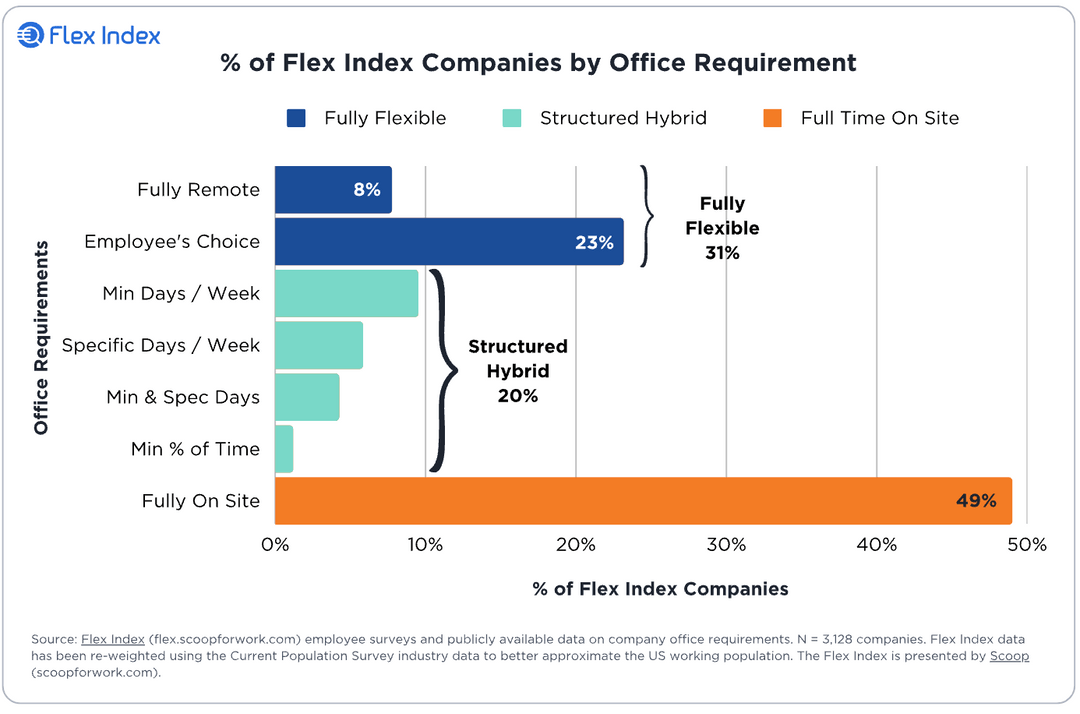Alludo announced the results of its Neurodiversity at Work survey highlighting how the traditional workplace is missing out on top talent by failing to support the needs of neurodiverse employees.
These workers can bring exceptional skills and much-needed strengths to businesses, with the survey highlighting that over 50% of neurodivergent employees can increase workplace flexibility, and creativity, and bring diverse ways of thinking that allow them to tackle challenges in unique ways.
Up to 20% of the global population is neurodivergent. That means they perceive and interact with the world differently than the neurotypical majority, and have one or more neurological differences that may include ADHD, Autism Spectrum Disorder, Dyslexia, Dyspraxia, and others.
That’s one in five people.
Double the number of people who are lefthanded.
Twenty times the number of people who have red hair, by some estimates.
In other words, not rare at all.
In addition to neurodivergent conditions, the survey also included a general category of “mental health conditions” (e.g., bipolar disorder, obsessive-compulsive disorder, etc.), as well as “social anxiety.” While neither category is typically recognized as neurodivergent, these conditions often co-occur with neurodivergent conditions and may impact an individual’s experience in the workplace. Mental health conditions were present for 20.9% of respondents, and social anxiety was present for 22.1%.

“It’s clear that even within organizations that have improved representation across certain groups, there’s a dimension that remains continually overlooked, under-valued, and underdiscussed: neurodiversity,” said Becca Chambers, SVP of Global Brand and Communications at Alludo. “In supported environments, neurodivergent individuals thrive and offer a wealth of strengths and abilities that allow them to make exciting discoveries and challenge the status quo. These exceptionalities are especially valuable now as businesses are struggling to find and retain talent. Embracing neurodiversity in the workforce is not only the right thing to do; it’s smart business.”
The survey polled 902 non-managers, managers, directors, VPs, and C-Level office workers between the ages of 18-65 living in the US and UK. Data reveals that neurodiverse workers can add exceptional value to a business through:
- Strong observational skills and attention to detail 40%
- Ability to stay focused for long periods of time 36.7%
- Excellent ability to recognize patterns 34.6%
- Excellent math skills 34.4%
However, the traditional workplace continues to function for the neurotypical majority, alienating and further stigmatizing neurodiverse talent. According to the survey, this disconnect has resulted in 51% of neurodivergent workers thinking about quitting or having left their job because they do not feel their employer is doing enough to support their needs. When different age groups were asked if they have quit or would consider quitting, younger employees were most likely to look for jobs elsewhere:
- Aged 18-24: 52%
- Aged 25-34: 54.5%
- Aged 35-44: 48.8%
- Aged 45-54: 35.8%
- Aged 55-64: 27.9%
While neurodiversity is often invisible, it is undoubtedly present throughout all organizations. Business leaders should see this as an opportunity to redesign outdated work processes to be more inclusive and accessible, while also creating a culture of psychological safety where all their employees—neurodiverse or not—can thrive. Not only does this benefit those who identify as neurodivergent but also makes room for more diverse ways of thinking, which is vital for continuous innovation and change.

“The need for innovative thinking will only become more important with the widespread adoption of sophisticated AI in the workplace,” said Chambers. “As conventional work gets automated, the ability to innovate, think outside the box, and approach problems with entirely different frameworks will become significantly more valuable.”
Alludo’s Neurodiversity at Work Survey was fielded in February 2023 with data from 902 respondents working across 25 industries in the US and UK. To see the full results of Alludo’s Neurodiversity at Work Survey Report, click here.
To learn how Alludo’s professional caliber graphics, virtualization, and productivity solutions are finely tuned for the digital remote workforce delivering the freedom to work when, where, and how you want, click here.
Related News:
71% of Organizations Struggle with Employee Turnover and Early Attrition
Kaspersky Survey Reveals a Gender Gap in Buying and Maintaining Smart Devices

